Английский язык для специальных и академических целей: Международные отношения и зарубежное регионоведение. Часть 1 - [88]
Russia, meanwhile, has found out that it is much less attractive to states in the neighborhood, especially in Ukraine, than it had hoped. And it has learned that when faced with a vital challenge, the EU can be a much tougher opponent than the Kremlin might have expected: EU member states, under German leadership, have managed to uphold a credible threat with massive economic sanctions for months, and they have built and upheld a common approach with the United States.
The Reader
This more realistic understanding of strengths and weaknesses may over time open up the possibility for Russia and the EU of new forms of cooperation on some issues, with the two powers at the same time confronting one another on other issues. Instead of taking the form of a broad partnership and a comprehensive inclusion of Russia into Western structures, this cooperation is likely to be limited to clearly defined areas.
Has Multiculturalism Failed?
http://realtruth.org/articles/110610-001-europe.html
By Robert R. Farrell and Samuel C. Baxter
The experiment of Europeans and immigrants living side by side strains under the weight of age-old problems.
They just keep coming. Tired, hungry, poor and desperate. Wearing only the clothes on their backs, often in tiny fishing vessels crammed with 300 or more people — all seeking the kind of refuge and better lives their home countries cannot provide.
Since the beginning of 2011, more than 26,000 immigrants from North Africa have reached Lampedusa, a tiny Mediterranean island off Italy's coast, tripling its population. So many have arrived that overwhelmed authorities have allowed them to set up refugee camps along the water's edge, rather than detaining them in immigration centers.
The exodus has sparked tension between displaced immigrants and locals who are dismayed by the intrusion into their once-sleepy island. Residents have posted signs and formed human blockades in an attempt to stop the flow of new arrivals — sometimes more than 1,000 daily. Those who fled have protested the Italians' treatment of them once they arrive.
Standard operating procedure is to transport immigrants to the Italian mainland, where some are granted temporary visas and handed a 150 euro train pass. With these documents, migrants can then set out for other nations within the European Union, which has had open borders since 1985.
Many immigrants granted temporary residency head to a specific destination. A large number travel to France, where they connect with family or friends already living there.
Large enclaves of immigrants are present in virtually every large European city. These ethnic neighborhoods have their own culture, language, and often their own set of rules. This is the case in London, Paris, Berlin, Rome, Amsterdam, Stockholm, Brussels and Oslo — where immigrants are a substantial part of populations.
For a long time, their presence was tolerated, even welcomed, adhering to the “melting pot” standard favored by democratic societies. This gave way to the concept of multiculturalism — or two distinct cultures living side-by-side within a nation.
Time has shown, however, that many immigrants have not assimilated into European cultures, thus threatening the unity EU member-states have worked hard to cultivate.
What has blocked the concept of multiculturalism from being successful?
The growing number of immigrants, combined with religious and cultural tensions, concerns about crime, slowing economies, and even the threat of terrorism, have worried natural-born EU citizens, and strained relations between countries that believe the problem should be addressed by the entirety of Europe.
The Reader
“From the start the Italian government set out to make this a European problem,” a BBC editorial stated. ". ..the Italian government issued the migrants with temporary visas, knowing only too well that with no border checks a majority of them would head to France. The Schengen Agreement, signed in 1985, created open borders among 25 countries. The UK and Republic of Ireland did not sign.
"The French saw the Italian move as cynical. They responded by stepping up border patrols and briefly stopped trains running between the two countries. The Italians were outraged. They accused France of violating one of the basic EU agreements. Then on 22 April the Elysee Palace hinted at a ‘suspension' of the Schengen agreement. Later that was qualified to mean reviewing some of the exemption clauses. The French say Europe is not about the free movement of illegal migrants.”
Over the last year, certain government leaders have spoken against the concept of multiculturalism as a whole.
French President Nicolas Sarkozy said during a television interview: "Of course we must respect differences, but we do not want.a society where communities coexist side by side.”
"If you come to France, you accept melting into a single community, which is the national community, and if you do not want to accept that you cannot be welcome in France.”
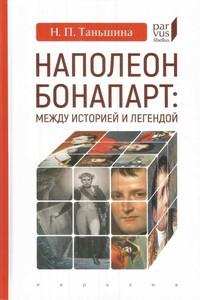
Наполеон притягивает и отталкивает, завораживает и вызывает неприятие, но никого не оставляет равнодушным. В 2019 году исполнилось 250 лет со дня рождения Наполеона Бонапарта, и его имя, уже при жизни превратившееся в легенду, стало не просто мифом, но национальным, точнее, интернациональным брендом, фирменным знаком. В свое время знаменитый писатель и поэт Виктор Гюго, отец которого был наполеоновским генералом, писал, что французы продолжают то показывать, то прятать Наполеона, не в силах прийти к окончательному мнению, и эти слова не потеряли своей актуальности и сегодня.
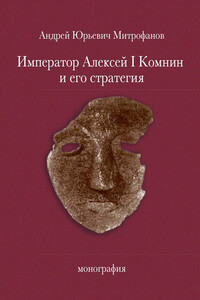
Монография доктора исторических наук Андрея Юрьевича Митрофанова рассматривает военно-политическую обстановку, сложившуюся вокруг византийской империи накануне захвата власти Алексеем Комнином в 1081 году, и исследует основные военные кампании этого императора, тактику и вооружение его армии. выводы относительно характера военно-политической стратегии Алексея Комнина автор делает, опираясь на известный памятник византийской исторической литературы – «Алексиаду» Анны Комниной, а также «Анналы» Иоанна Зонары, «Стратегикон» Катакалона Кекавмена, латинские и сельджукские исторические сочинения. В работе приводятся новые доказательства монгольского происхождения династии великих Сельджукидов и новые аргументы в пользу радикального изменения тактики варяжской гвардии в эпоху Алексея Комнина, рассматриваются процессы вестернизации византийской армии накануне Первого Крестового похода.
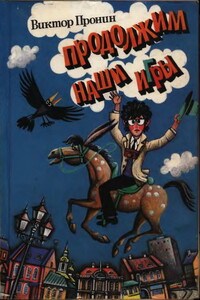
Виктор Пронин пишет о героях, которые решают острые нравственные проблемы. В конфликтных ситуациях им приходится делать выбор между добром и злом, отстаивать свои убеждения или изменять им — тогда человек неизбежно теряет многое.
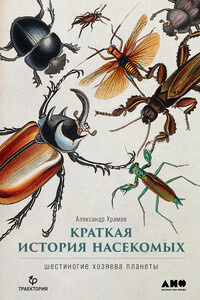
«Любая история, в том числе история развития жизни на Земле, – это замысловатое переплетение причин и следствий. Убери что-то одно, и все остальное изменится до неузнаваемости» – с этих слов и знаменитого примера с бабочкой из рассказа Рэя Брэдбери палеоэнтомолог Александр Храмов начинает свой удивительный рассказ о шестиногих хозяевах планеты. Мы отмахиваемся от мух и комаров, сражаемся с тараканами, обходим стороной муравейники, что уж говорить о вшах! Только не будь вшей, человек остался бы волосатым, как шимпанзе.

Настоящая монография посвящена изучению системы исторического образования и исторической науки в рамках сибирского научно-образовательного комплекса второй половины 1920-х – первой половины 1950-х гг. Период сталинизма в истории нашей страны характеризуется определенной дихотомией. С одной стороны, это время диктатуры коммунистической партии во всех сферах жизни советского общества, политических репрессий и идеологических кампаний. С другой стороны, именно в эти годы были заложены базовые институциональные основы развития исторического образования, исторической науки, принципов взаимоотношения исторического сообщества с государством, которые определили это развитие на десятилетия вперед, в том числе сохранившись во многих чертах и до сегодняшнего времени.
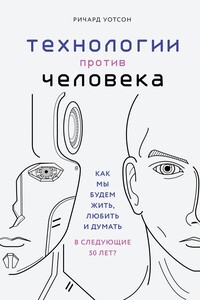
Эксперты пророчат, что следующие 50 лет будут определяться взаимоотношениями людей и технологий. Грядущие изобретения, несомненно, изменят нашу жизнь, вопрос состоит в том, до какой степени? Чего мы ждем от новых технологий и что хотим получить с их помощью? Как они изменят сферу медиа, экономику, здравоохранение, образование и нашу повседневную жизнь в целом? Ричард Уотсон призывает задуматься о современном обществе и представить, какой мир мы хотим создать в будущем. Он доступно и интересно исследует возможное влияние технологий на все сферы нашей жизни.